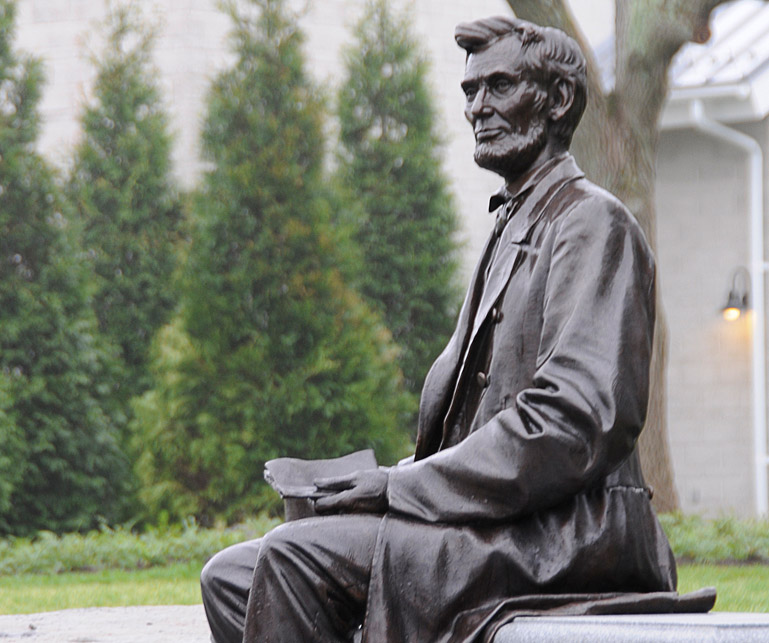By Niles Anderegg
 The Gettysburg Address is perhaps the most famous and often quoted speech in American history, so much so that the original intent behind Lincoln’s words has sometimes been lost or minimized by the transformation of those words from a speech given in the midst of civil war to something near to American scripture. From time to time, we need to reexamine what Lincoln said and what his goals were when he delivered this famous little speech.
The Gettysburg Address is perhaps the most famous and often quoted speech in American history, so much so that the original intent behind Lincoln’s words has sometimes been lost or minimized by the transformation of those words from a speech given in the midst of civil war to something near to American scripture. From time to time, we need to reexamine what Lincoln said and what his goals were when he delivered this famous little speech.
The Gettysburg address is that rare document that speaks to the moment and also to the future. On that November day 147 years ago, Lincoln used his “few appropriate remarks” to speak to both the sacrifice of the soldiers who fought there and more generally to a nation still struggling with Civil War. What makes the Gettysburg Address the speech we fondly remember today, however, is that Lincoln wanted to talk about something beyond the cemetery he was dedicating or even the war he was defending. Lincoln spoke to what is important about America. He talked about why this nation is the last best hope on earth, something that speaks to us as much today as it would have then.
Lincoln famously begins his speech with the words “four score and seven years ago.” This beginning is not only stating a chronological fact, but it is taking the nation back to the founding moment, to the revolution of 1776. The importance of 1776 is not just the event itself but also what the founders said those 87 years before. Lincoln, by focusing on the revolution, and more specifically the Declaration of Independence, is making an argument about what America stands for. In that same first sentence, he simply and directly states his case: “a new nation, conceived in liberty, and dedicated to the proposition that all men are created equal.” By highlighting these words from the Declaration of Independence, he is indirectly speaking to the issue of slavery, and in doing so is trying to expand the cause of the war from just saving the union to redefining the union, or, in Lincoln’s own words, giving the nation “a new birth of freedom.” As Gary Wills has written, “The Gettysburg Address has become an authoritative expression of the American spirit—as authoritative as the Declaration [of Independence] itself, and perhaps even more influential, since it determines how we read the Declaration.”
Today it might seem strange to view the Declaration and the ideas that are found in it as controversial, but in Lincoln’s time they were controversial. Anti-administration newspapers, both here and abroad, understood what Lincoln was saying at Gettysburg and tried to refute his argument about the importance of the Declaration. For example, the New York World argued that the country came not from the Declaration but from the Constitution, which, they insisted, “says nothing whatsoever about the equality.” But the Constitution was written in order to address the practical issues of government and law, and so instead of talking about the ideals of “life, liberty, and the pursuit of happiness,” the Constitution talks about “life, liberty, and property.” The Declaration, on the other hand, spoke not to practical issues of government but rather to the reasons why this new nation needed to be conceived. As Ronald C. White notes, “Lincoln, although admiring the Constitution, labored under its constrains for the first years of the war. At Gettysburg, he chose to emphasize the liberties emblazoned in the Declaration of Independence.”
In the Gettysburg Address, however, Lincoln was not dismissing the Constitution in favor of the Declaration of Independence. Instead, he was elevating the Declaration to almost equal footing with the Constitution, and claiming that it represented what his Secretary of State, William Seward, had once called “the higher law.” The Constitution is the law of the United States, but Lincoln saw the Declaration as the spirit of United States, and he realized that in order for that nation to live, the law and the spirit must be one. As Daniel Webster, one of Lincoln’s political heroes, put it, “liberty and Union, now and forever, one and inseparable!”
